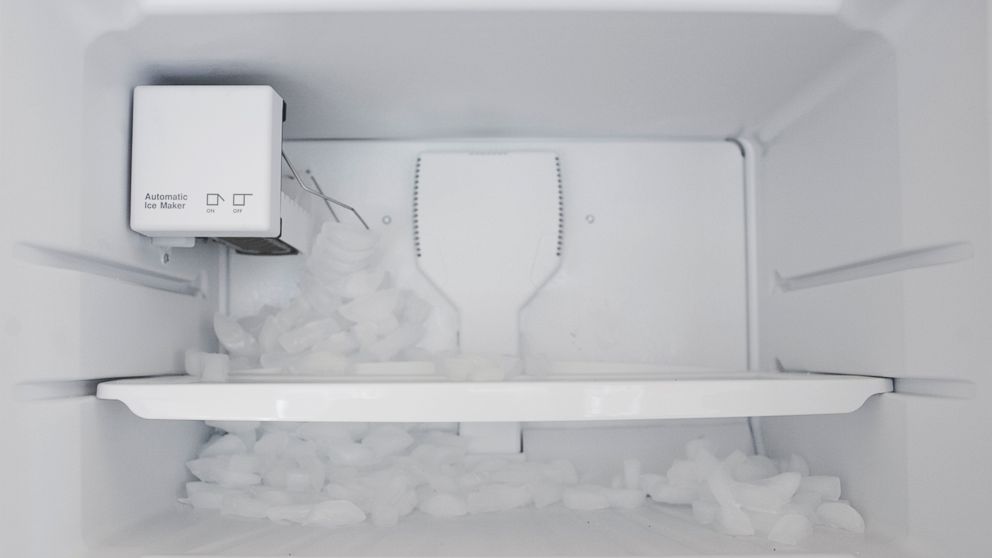The Fridge That Won’t Stop Spitting Ice
ABC News Fixer helps with busted fridge, has tips for next appliance purchase.

— -- Dear ABC News Fixer: I purchased an Amana brand side-by-side refrigerator in November. Within two weeks the ice maker began dropping ice out of the freezer door, spraying it around the kitchen floor.
I am 96 years old and I pass by with a walker, and we have around-the-clock health aides moving by the refrigerator as well.
We have talked with multiple representatives from Maytag, had 12 service visits and had the ice maker replaced on April 16. Still, the problem persists. At one point, a woman from the Maytag Service Center said the entire refrigerator should be replaced and they would contact us within 72 hours. No one called. When we inquired, we were told it won’t be replaced.
This is a serious safety issue. I need crushed ice for medical treatments, but I worry about the slippery floor.
- Blanton Whitmire, Kirkwood, Mo.
Got a consumer problem? The ABC News Fixer may be able to help. Click here to submit your problem online. Letters are edited for length and clarity.
Dear Blanton: The ABC News Fixer agrees: You shouldn’t have to endure an ice-spitting fridge, especially one that began acting up right after you bought it.
The good news is that when we informed Whirlpool about what happened, they jumped right on it. Whirlpool spokeswoman Kristine Vermier said your warranty covers repairs for one year, but she added that sometimes there are “unique cases” in which they’ll go further. Given that the repairs didn’t fix it and in the interest of customer loyalty, they decided to go ahead and give you a new one. It’s expected to arrive soon.
You handled this issue just the way consumer advocates say you should – by first going through the company, invoking your warranty and giving them a chance to fix it, and then finally trying to reason with them. Many companies will quietly offer a “goodwill” solution if you can bring a strong case.
Here is some more advice for anyone considering a large appliance purchase:
- Manufacturers don’t have to offer warranties, but most do for major purchases. When there is a warranty, retailers must allow you to look at the warranty language for any product that costs more than $15, says the Federal Trade Commission. Make sure you understand how long the warranty lasts, whether anything voids the warranty, and whether it covers repairs, replacement or refunds.
- Know whether the warranty covers “consequential damages” – such as spoiled food from a broken fridge. Many don’t.
- Be aware of inconvenient requirements to use the warranty, such as having to ship the product at your expense for repairs or pay for labor.
- Every state has laws about “implied warranties,” which cover pretty much any purchase you make. An implied warranty simply means that the product will do what it’s supposed to do and be free of substantial defects.
- However, if a product is sold “as-is,” it won’t have an implied warranty, according to the FTC. And Consumer Reports warns that some companies include language in their own warranties to disclaim the implied warranty. (You may still have protections against this if your state has strong pro-consumer laws.)
- Check with your credit card issuer to see if they offer any additional warranty protections.
- If a salesperson makes any promises, get them in writing. Save the warranty, the receipt and any related documents – including advertisements or written promises that the product will perform in a certain way.
- If you report a defect during the warranty period and the company didn’t fix it properly, they are still required to fix it even if the warranty expires in the meantime.
- The “extended warranties” offered by some stores at the time of purchase are usually a fool’s bet. If the item breaks and you need a repair, it’s not likely to cost much more than the price of the extended warranty. Consumer Reports says you’re better off keeping the money.
- The ABC News Fixer




